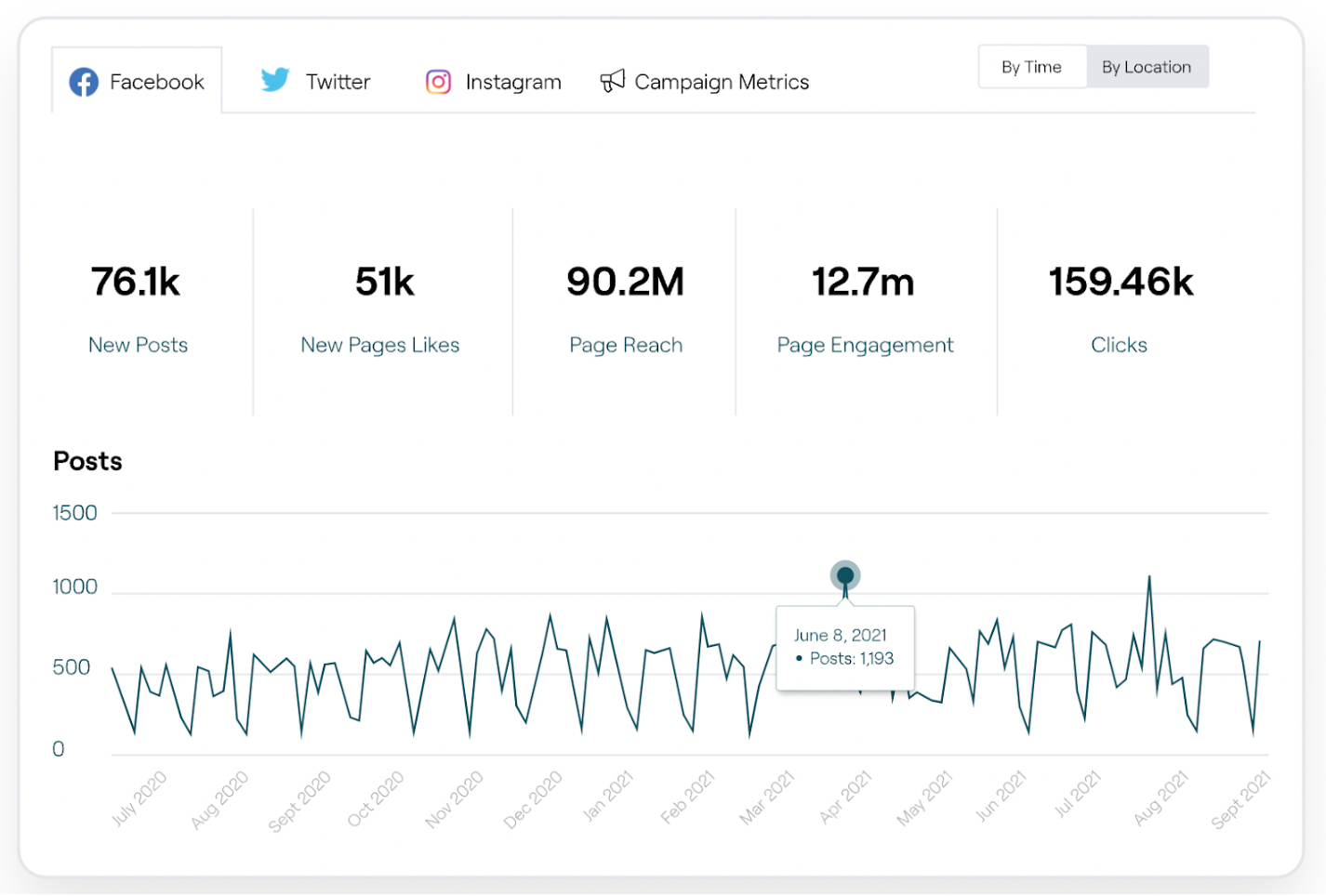By: Timi Chu, Director of Product Management at Reputation, Alyse Finlayson, User Experience Designer of the Social Suite at Reputation, and Katie Wei, Senior Manager of Social Media Operations at Reputation You have identified the best social network for building your business and your team is producing and sharing great content. But how do you know whether your content is actually resonating with your audience? How do you justify the return-on-investment to executives? In this article, we will define social media metrics and share their value in impacting your social media marketing strategy.
What are Social Media Metrics?
Social media metrics provide a quantitative way of measuring progress towards your social media goals. They guide your understanding of whether your approach is effective. For example, your business goal may be to increase appointments scheduled by 10% within the next 3 months. To meet this goal, you decide to run a campaign that highlights the products/services you offer. You plan to publish two posts a week, collaborate with an influencer to reach a broader audience, and incentivize participation by offering a free gift. To measure progress towards this goal, you must monitor post engagement and conversation to website traffic. Social media metrics can measure the effectiveness of your social media strategy. The data can show the impact of social media on top-line revenue. It can justify growing the investment in social media management.
Engagement: Comments, Likes, Shares, and Clicks

Engagement sums up the total amount of actions that have been taken on your posts. However, keep in mind that each social network has its own idiosyncrasies when it comes to defining engagement. Social media users may have interacted with your posts by commenting, liking/reacting, sharing the post, or clicking the call-to-action link. Related: 7 Steps to Build a Social Media Management Strategy in 2022 High engagement can indicate:
- Authentic, engaged audience: These social media users identify with your brand and want to associate themselves with you.
- Interesting, enjoyable content: Followers who were struck by your visually compelling content or a witty caption.
Common engagement metrics include:
- Comments, likes, shares, saves: The number of times that each action type was taken on a post or a page.
- Engagement rate: Number of individual engagements divided by the number of impressions or reach. A high engagement rate indicates that the content was interesting to your audience.
- Clicks and click-through rate: Number of times someone clicked on the post. This includes the link in your post, company name, or logo. The total number of clicks and click-through rate provides insight into whether your call-to-action was effective.
- Story views: number of times users saw your stories. Be sure to note that stories only remain active for 24 hours from the time they are posted.
Impression and Reach
If your goal is to build brand awareness, keep an eye on these metrics. Impressions and reach go further than engagement. That’s because the right metrics can tell how many users saw your posts, even if they don’t directly engage with the content you share.
- Impressions: Number of times your posts have been seen.
- Reach: Number of unique profiles who have potentially seen your post. Keep in mind that posts shared by influencers tend to have higher reach.
Customer Sentiment
The customer experience is at the core of every business. Customers are talking about your brand online and sharing both positive and negative experiences. In a way, that means your social media platforms double as an unofficial customer sentiment analysis for your team.
- Volume of questions: A high number of questions that are seemingly unrelated to your original post can indicate a lack of customer resources. Consider adding an FAQ section on your website, keeping your business listings updated, or having your customer service team focus on social
- Sentiment: Understand how customers are reacting to your content. Posts that elicit negative comments can highlight areas for improvement within your business.
Customer Care Response Times
As consumers become more comfortable with social media, they may try to reach you for customer satisfaction needs through private messaging on social channels. Facebook direct messages are becoming the new email, and who wants to talk on the phone anyway?
- Average response time: Amount of time that your customers must wait before receiving a response. Keep this number below 10 minutes in order to provide a great customer experience.
Related: How to Provide Great Social Media Customer Service
Ready to Evaluate Your Social Media Strategy?
The Reputation Social Suite can help you take your business’s social media management to the next level. Publish content to thousands of business pages across top social media networks in a single click. Engage with your customers to create a great customer experience. Fine-tune your social media strategy using real time metrics and insights. Let Reputation manage and optimize your social media strategy with our Managed Services for Social Publishing and Social Community Management.






